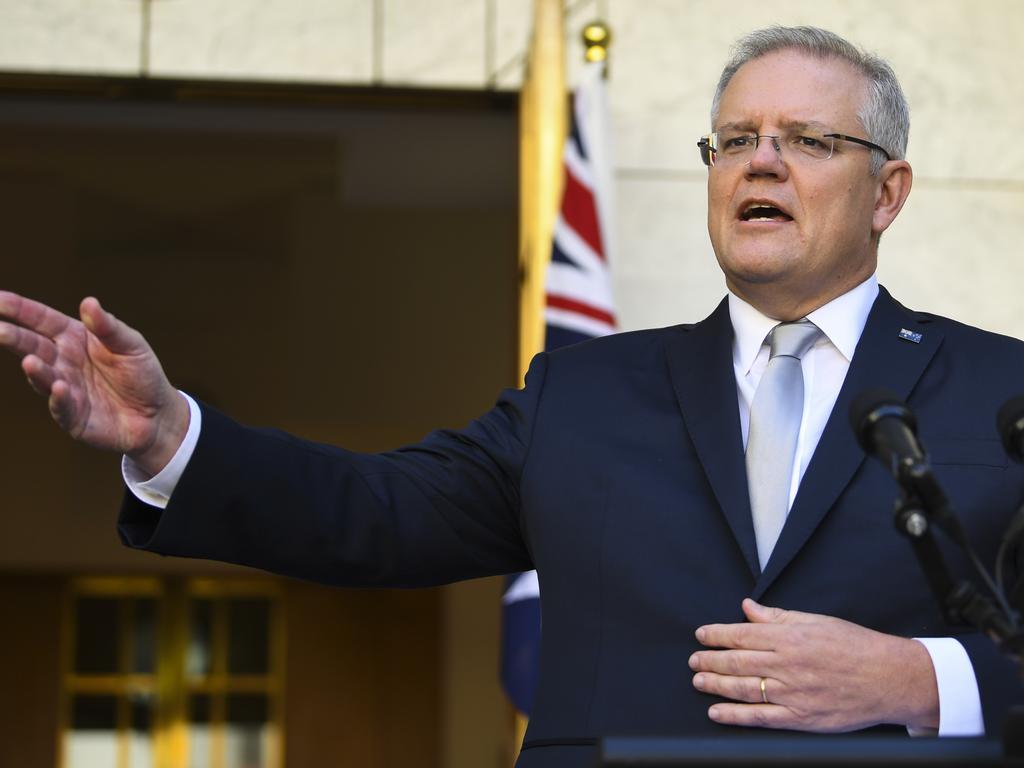The big four banks have been political pariahs in recent years and Scott Morrison led the attack on the banks through, among other means, his unprecedented bank tax.
Then there was the royal commission and now there is coronavirus.
All of a sudden the big four are the government’s best friends, as they negotiate a multi-billion-dollar business rescue package with the Morrison government.
There are of course lashings of self-interest involved, with $1.8 trillion in housing debt outstanding at a gearing ratio of 200 per cent. The banks would take an extraordinary hit if unemployment is allowed to skyrocket.
The government doesn’t want the economy in a recession either so they come to the table with mutual self-interest.
ANZ chief Shayne Elliott was on Melbourne radio earlier this week selling the message that the banks are strong and ready to help.
“This is what banks do,” he told a business lunch last week.
He is right and, if they play their cards correctly for at least a short period the banks, will emerge as the good guys.
If a business has breached its covenants for a virus-related reason you won’t find the bank on its door with a reclamation notice.
If someone is laid off for the same reason the banks will be willing to let you have a holiday on your mortgage for a few months.
The banking oligopoly is easily managed from a government’s perspective, because just four phone calls cover 80 per cent of the market.
The government is looking at guaranteeing loans to cover businesses in financial trouble.
This is the same bunch of politicians who put their hands in the banks’ pockets to raise some tax money, and the same lot who rubbed the banks’ noses in the dirt in the wake of the royal commission.
Now the banks are the key mechanism to keep business running.
While this good cheer lasts non-banks are also seeking some help via the Australian Office of Financial Management, which came to the rescue of the securitisation market during the GFC.
There is a real need for a repeat dose given the right credit markets.
Qantas has showed the way with an announcement that by temporarily standing down 20,000 staff, it will ensure they get their jobs back when the crisis passes.
Like Coles and Virgin, Qantas and Woolworths are looking to park staff with the supermarkets to cope with their staff shortages.
Big business is working to help workers.
This national crisis is proving correct Business Council of Australia claims that big business is the engine of the economy and can enjoy a moment in the sunshine.
Just how long it lasts remains to be seen, given the notoriously short attention spans of the political leaders.





As financial markets await the Reserve Bank’s attempt to pump desperately needed capital into Australian markets, the big banks have mounted an extraordinary revival.